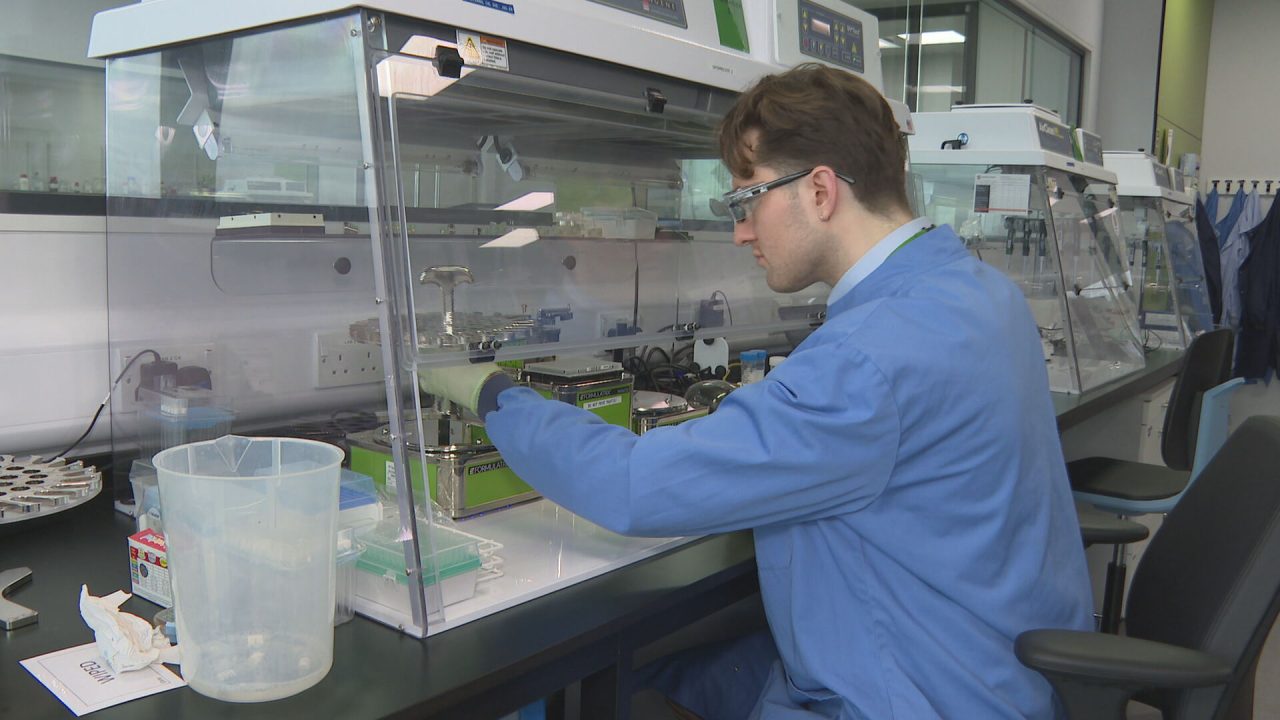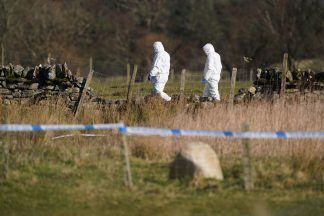Scientists in Scotland are using cutting edge technology to tackle a silent and serious lung condition.
Bronchiectasis affects more than 5,000 Scots but that number is likely to be much higher as it is often undiagnosed or mis-diagnosed.
It is a largely unknown condition where the airways of the lungs have become widened, leading to a build-up of excess mucus.
This can make the lungs more vulnerable to infection, which can lead to the need to stay in hospital.
Scientists at the LifeArc labs at the BioQuarter campus in Edinburgh are using their world-leading expertise in diagnostics to revolutionise how bronchiectasis is diagnosed and managed.
The teams are using cutting-edge new approach aimed at improving care for people living with this condition by using a test that can identify the bacteria causing lung infections in people with bronchiectasis.
It’s hoped it will help people be treated quicker and more effectively.

Kate Arnott is 81 and lives in Edinburgh, caring for her 97-year-old husband.
She was diagnosed with bronchiectasis (BE) at the age of 79 but was told she might have been living with it for years.
She said BE has fundamentally changed her life over the years and has meant she can’t always do what she wants to do.
She said she often feels breathless and has to conserve her energy for simple daily tasks.
She said: “I can look back and think of instances where I had to give up on some activity and I felt guilty – and now I realise I didn’t need to feel guilty; I just wasn’t capable.
“In many senses it’s been limited – and at times very depressing.”
The hope is that this technology will eventually be adopted by the NHS and even expanded globally.
Dr Rebecca Holmes, a scientist at LifeArc in Edinburgh, said: “What these people suffer from is ongoing chronic infections that can result in lung flare ups or exacerbations and that can lead people to going into hospital.
“So what we’re developing is a test that should take around four hours from sample to result so we know what infection is present and even be able to pick up multiple different infections if there is more than one infection, so we can target the treatment effectively.”
Dr Erika Kennington from Asthma & Lung UK said: “One of the challenges with bronchiectasis is these regular chest infections and that’s what causes the long-term damage in the lungs – so for all that times that you’re not getting the right treatment because of a late diagnosis or misdiagnosis, you’re getting this build-up of long term damage.”
Follow STV News on WhatsApp
Scan the QR code on your mobile device for all the latest news from around the country




























